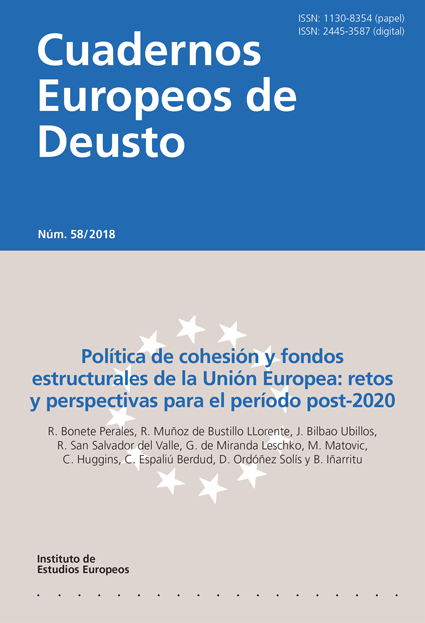Taking European defence seriously: The naval operations of the European Union as a model for a Security and Defence Union
Abstract
The two naval operations set up until now by the EU, Atalanta and Sophia, have demonstrated a growing level of consensus and willingness by Member States, a great number of which participating in both operations. Furthermore, and more clearly in the case of Atalanta but also in the first stages of Sophia, it can be said that these CSDP activities have been highly successful, taken into consideration the level of accomplishment of their respective goals. Having shown its potential, the launching of naval operations in crisis management could be seen as a step forward in the creation of a Security and Defence Union. Therefore, the next step in European integration regarding security matters can be the implementation of the Permanent Structured Cooperation anticipated in Article 42.2 and 46 of TEU and developed in Protocol No 10 annexed to the Lisbon Treaty. That achievement would be the landmark that would generate the nucleus from which a Security and Defence Union can emerge
Received: 14 December 2017
Accepted: 10 January 2018
Published online: 28 March 2018
Downloads
The author grants to the Publisher the distribution, public communication, and reproduction rights of her/his work subject of publication in Deusto Journal of European Studies (DJES), whichever the media may be, including the permission to include it in the databases where this Journal is indexed and in the institutional repository of the Universidad de Deusto.
Upon its publication, the content of any Issue of Deusto Journal of European Studies (DJES) can be accessed, read, downloaded, copies, and distributed freely for non-commercial purposes and in accordance with any applicable copyright legislation.
The content of Deusto Journal of European Studies (DJES) can be subsequently published in other media or journals, as long as the author clearly indicates in the first footnote that the work was published in Deusto Journal of European Studies (DJES) for the first time, indicating the Issue number, year, pages, and DOI (if applicable). Any other use of its content in any medium or format, now known or developed in the future, requires prior written permission of the copyright holder.
The content of the work published in Deusto Journal of European Studies (DJES) is each author's sole responsibility. The authors assume the responsibility of obtaining all the necessary licenses for the reproduction in their manuscripts of any text, material or illustration coming from another author, institution or publication. The liabilities that may arise from complaints for publishing plagiarised articles are the sole responsibility of the author.


3.jpg)
2.jpg)
2.jpg)
2.jpg)
2.jpg)
2.jpg)







